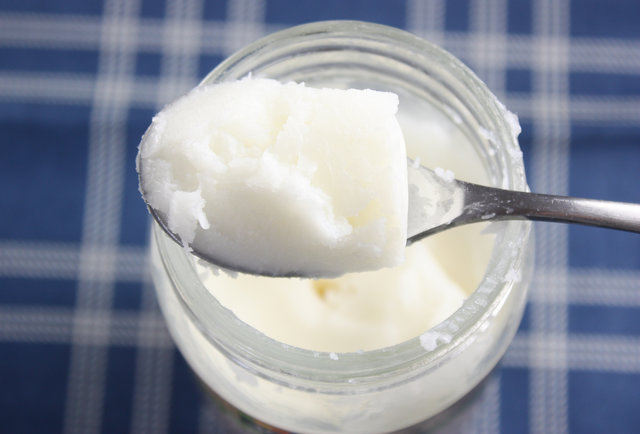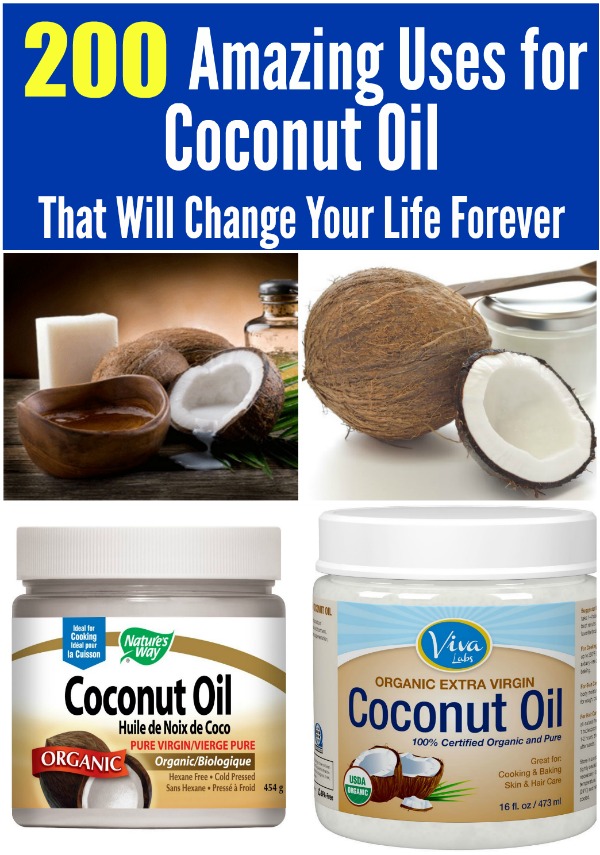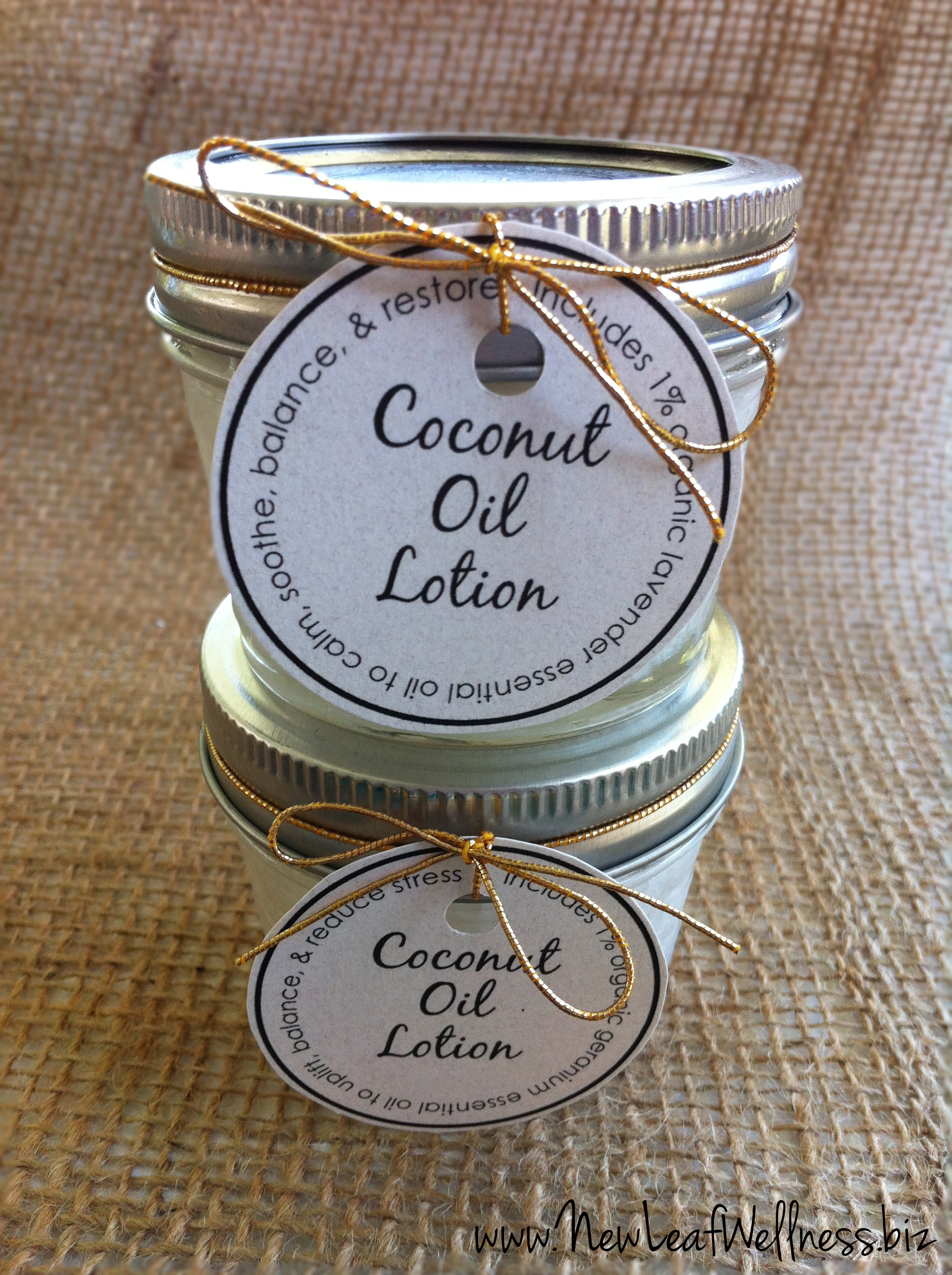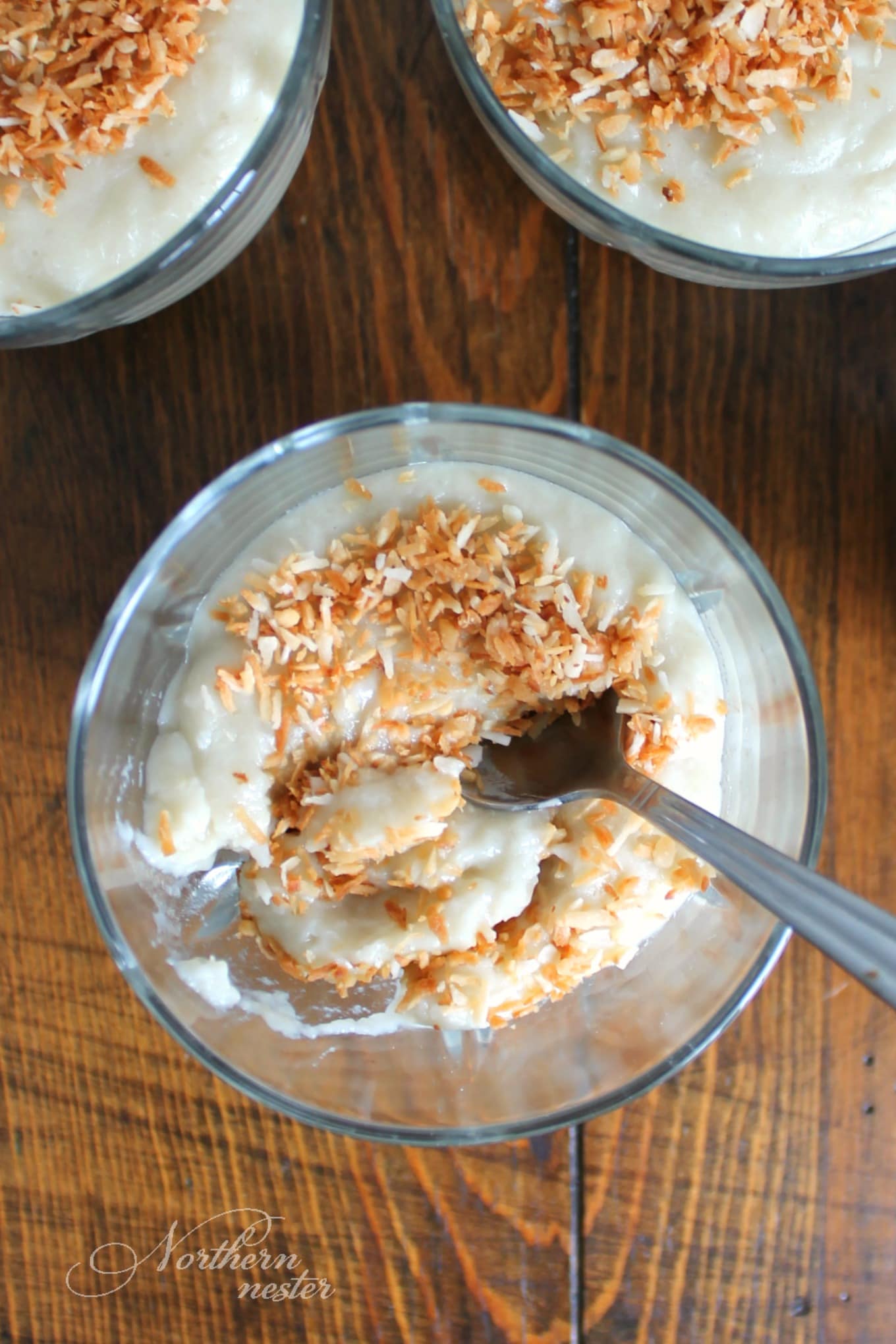Generally, we all have our go-to beauty products that we trust when it comes to our skin. But there are some natural products which can suit all skin types if used in small quantities. One such is coconut oil, which contains nourishing fatty acids that help hydrate and protect the skin. It also includes linoleic acid, vitamin F, which helps skin retain moisture, and lauric acid, which has antibacterial properties. Just like any night serum, you can alternatively use coconut oil on your face and see a remarkable difference. Coconut oil is easily absorbed into the skin and is known to have many health benefits, including those from vitamins E and K, as well as its antifungal and antibacterial properties.
Along with cocoa butter, coconut oil is likely to cause breakouts. "In general, coconut oil is a great option for almost everybody, except if you have oily skin and you're acne prone, I would not use it on the face," Katta says. In astudy published in the journalDermatitis, researchers found coconut oil was better than olive oil at moisturizing skin when used in a carrier. Remember to look for cold-pressed, unrefined coconut oil for your face or skin care. It is lighter than jojoba oil or coconut oil, and thus better at controlling facial oils.
Second, it has a great amount of vitamin E, about twice as much as olive oil! This means it provides antioxidants for your skin. An interesting study measured the ability of grapeseed oil to help oily skin.
Can You Use Oil Instead Of Moisturizer Grapeseed oil is high in linoleic acid, which has been thought to reduce clogged pores. In general, skincare oils help the skin's lipid barrier retain moisture. This is a very popular alternative that is very well-known, cheap and can be found at your local grocery store. Coconut oil contains antioxidants and vitamins that help your skin stay moisturized.
Many people worry about feeling sticky after applying it, but coconut oil absorbs rapidly into your skin and it leaves it feeling moisturized and smooth. Coconut Oil contains fatty acids that help reduce signs of aging, keeps dry skin moisturized, and can also help with other skin problems such as stretch marks, scars, cellulite, or even diaper rash. It can also be used as a natural SPF sunscreen as it blocks 20% of ultraviolet radiation. Coconut oil is a wonderful natural product that you can easily incorporate into your everyday beauty routine in many ways. Rich in fatty acids, coconut oil is not only great at moisturizing the skin, but it also increases skin elasticity, which means it can be anti-aging. Coconut oil also contains many antioxidants, especially vitamin E, which means it can protect skin from external damage such as sun damage.
Additionally, coconut oil has lauric acid, which has antimicrobial properties, meaning it can help fight acne-causing bacteria. Many people have olive oil, coconut oil, or sunflower seed oil in their kitchen cabinet. But can the same oils you cook with be applied to your face? Katta confirms that organic and unrefined products are your best bet.
As long as you're making any coconut lotion, salve or bar its always a good idea to add some nutracuticals to the mix to enhance it. Easy ones because they come in oil already, include vitamin E , tocotrienols, CoQ10 , grapeseed oil, circumin (micronized, careful the coloring!) and beta carotene . You can mix equal amounts of water with the coconut oil by creating an emulsion with 1 TBSP lecithin (non GMO!) per cup of mix . For the organic herbs I suggest making an infusion and strain out the pieces before mixing with the warmed coconut oil & lecithin. Add zinc oxide for some added sun protection or D3 oil if you're not getting sun. You may have to experiment to get the right mixture result depending on your specific ingredients, but its easy to warm up again and add more of something as needed to get the right result.
Sometimes the resulting warm mixed liquid does not set up well until refrigerated, thereafter it was a stable solid or semi solid at room temp. Consider your skin type before using coconut oil. While coconut oil can be a great moisturizer for some people, it may not be the best choice for others. Coconut oil may be suitable for dry or normal skin types.
If you have oily or acne prone skin, use coconut oil sparingly or choose another natural treatment, such as tea tree oil or aloe vera gel. I was diagnosed with Porphyria back in 2004, which is a sun sensitive skin issue. The Dr. instructed me to stay out of the sun as much as possible and to put on SPF 50 if I had to be in the sun. After a while I began consuming a small amount of olive oil per day. One in the morning and one late in the afternoon.
It is also good to take vitamins and supplements with coconut oil due to the fatty acid content. This helps the body to get more benefits out of certain vitamins and supplements, such as turmeric or curcumin. I get out in the sun at will now and many times without my shirt on for as many as 3 hours and I just get tanner and tanner with no damage.
Ingesting coconut oil is far better for the skin than topical application. It conquered the Porphyria disease and set me free! Extracted from the seeds of wild rose bushes, rose hip seed oil has seen a surge in popularity and is increasingly found in facial skincare products that tout moisturizing, anti-aging benefits. Natural oils are made from all-natural ingredients like fruits, nuts, vegetables, etc. Some examples of natural face oils include jojoba oil, argan oil, almond oil, sunflower oil, etc. These types of oils contain vitamins, minerals, and other nutrients that promote healthy skin.
Coconut oil is one of the best natural oils you can use for your skin as it contains lauric acid, which has antibacterial properties. Extracted from the kernels found in the fruit of Moroccan argan trees, argan oil has high levels of vitamin E, omega-3 fatty acids, and antioxidants. While it first claimed fame as a savior for dry, damaged hair, the oil also works wonders on the face and body. The fatty acids help our best for dry skin types with intention of anti aging. Natural oils, such as coconut oil, shea butter oil, and olive oil, have been used for skin care and hair care for centuries.
Generation after generation have touted them for various moisturizing, protective, and antibacterial qualities. Despite the antibacterial and antimicrobial properties of coconut oil, however, it's not the greatest acne-fighter. "Coconut oil is fairly comedogenic, meaning it can clog pores and contribute to acne," says King.
"Tea tree oil has developed a reputation for being a great sort of antibacterial, antifungal ingredient. It does have those properties, but you really have to use it very carefully," she says. Coconut oil has known antibacterial and antifungal properties, making it good for cooking and for your skin.
It is gentler than chemical-laden face products and is hydrating for most skin types. People with oily or acne-prone skin should use it sparingly. Coconut oil is truly an ideal product for all skin types.
Saturated fatty acids and vitamins A and E endow coconut oil with many properties, i.e., nourishing, moisturizing, soothing, antibacterial, regenerating, and healing. Thanks to the power of lauric acid, one of the medium-chain fatty acids in coconut oil, coconut oil has impressive antimicrobial and anti-fungal properties. It can be used for athlete's foot and other mild skin maladies. Extra virgin olive oil also contains polyphenol compounds that are shown to be antimicrobial, though these are less effective at killing microorganisms than coconut oil. Olive oil — particularly extra-virgin olive oil — is a good all-around natural moisturizer and is recommended for dehydrated skin. Like jojoba oil, olive oil is similar to the oils naturally produced by our skin and so is absorbed well into the skin.
It typically does not cause allergies, but because it's a heavier oil, those with acne should avoid using it on their face. Likewise, you don't necessarily need to toss a makeup or skincare product if you notice coconut oil as an ingredient on its list; though you should keep an eye on how your skin reacts. "I keep a jar of organic extra virgin coconut oil by the kitchen sink and put a little on after washing my hands to keep them soft and moist," says Dr. Low Dog. So if you're really amped up about dipping your body in coconut oil, make sure to apply it over a layer of moisturizer to make it most effective.
That moisture-bestowing goodness leads to all sorts of complexion perks, from helping on the anti-aging front and fighting certain bacteria on the skin (it's antimicrobial). This is why some people find it helpful when dealing with acne. "Those medium chain fatty acids have strong antibacterial effects that can help with inflammation." But that said, it may not be quite right for everyone with breakouts.
Coconut oil is suitable for all skin types, i.e., normal, dry, or oily skin. The main component of coconut oil is lauric acid (44.8%). This saturated fatty acid helps to counteract the proliferation of bacteria, viruses, and fungi.
Because coconut oil is fairly comedogenic, many dermatologists actually don't recommend it for use on the face — especially if you have naturally blemish-prone skin — but the body is fair game. If you are looking for a great moisturizer, then coconut oil can be a great, affordable option. Coconut oil acts as a great natural moisturizer for your body. Due to the presence of fatty acids and vitamin E, it provides protection and nourishment to the skin. It provides a barrier on the skin to hold the moisture inside and prevent dryness of the skin.
Regular use of coconut oil gives you perfectly soft skin. Coconut oil contains a unique combination of fatty acids and antioxidants that helps to prevent skin and hair damage. It has anti-bacterial and anti-fungal properties that help to fight against different skin and hair infections. It contains medium-chain fatty acids that contain Caprylic acid, Lauric acid, and Capric acid. Lauric acid is known for its antimicrobial, moisturizing, and hormone-balancing properties.
Some studies have found that the medium-chain fatty acids found in virgin coconut oil have impressive antimicrobial properties. These fatty acids, which are a form of saturated fat, make up 65% of the total composition of virgin coconut oil. Lauric acid, which makes up 49%, is particularly effective at killing harmful microorganisms and bacteria. The most notable difference between these two moisturizers is Shea butter is suitable for all skin types, but coconut oil is not. Coconut oil doesn't suit oily skin and acne-prone skin, which can result in clogged pores and acne breakouts. Besides, if you apply too much coconut oil to your skin, it can become greasy.
That's why coconut oil is not recommended to all. Young agrees on jojoba oil, and adds in argan oil as another source of omega fatty acids, vitamin E, and linoleic acid. "These oils have been found to have healing and anti-inflammatory properties, and are great choices for someone suffering from psoriasis or rosacea, along with acne and breakouts," she says. " great option is evening primrose oil—which is fantastic for very sensitive, reactive skin." With these in your cabinet and routine, we promise you won't even miss your old coconut jar. I have found that Doterra essential oils are the best ones out there.
They are totally pure and very potent so a little goes a long way. I add doterra oils to my coconut lotion and it adds wonderful benefits based on the kind of oil I used. This company also provides tons of info about how to use the oils and what each one can do. Same thing here, dry skin and after a while it wasn't working anymore, but i have dry skin issues to begin with. You could try whipping tea tree oil into your coconut oil. I think tea tree oil stinks terribly but it works for clearing up my acne since it's a natural antiseptic.
You could even apply the tea tree oil without the coconut oil right before you go to bed and then you don't have to worry about the smell. The fact that it doesn't solidify does not mean it isn't pure it means it's fractionated. It is great for using as massage oil and adding essential oils too for massage or any other general use. It's great for adding to roller bottles to apply essential oils therapeutically as well and adding a few drops of vit E oil is always worthwhile.
But most FCO is not contaminated this way and as long as you are purchasing a quality product it is pure with many great uses. In the Arizona desert, I developed very dry skin and eczema @ 60, I have been using coconut oil as a facial and body moisturizer morning and night for several months now. The only other moisturizer I use is a tinted BB cream with high SPF on my face after the coconut oil has absorbed. I must admit at first I used way too much on my legs, and slid around on chairs! I also use it on my hair, leaving it on for about 1/2 hour before shampooing– finally my hair doesn't look like brillo!
Lots of $$$ saved buying moisturizers for skin and hair! If you don't have breakout-prone skin, coconut oil is fine to use as a part of your daily skincare routine. If your skin is on the congested side, try reaching for other oils like calendula, hemp seed, rosehip, or tamanu, which may be less likely to cause breakouts in oily skin types. Coconut oil can also be used as a natural treatment option for those with eczema, a cluster of skin issues that lead to red, itchy, swollen patches of skin. Apply a light layer of virgin coconut oil to the affected area twice a day to help soothe eczema. In conclusion, facial oils are definitely better than commercial moisturizers.
They have many benefits including getting rid of acne, preventing premature aging, and managing fine lines and wrinkles. Not to mention that most of them on the market are all-natural and safe to use. However, you should take into consideration that some of them may cause irritation or other side effects. Before using any oil on your face, make sure that it is safe to use on your skin by doing some research first.
If you start using a face oil and start to get a rash or pimples it is best that you consult with a professional as there might be an underlying issue. Some people have issues with conventional moisturizers, they might make your skin feel even dryer, or oilier because they have ingredients that are quite questionable. If you are one of these people then maybe face oils are the perfect solution to your problem.
Moisturizer is made to maintain the natural oil of your skin by providing it with extra moisture. It prevents excessive sebum production and clogging of pores. On the other hand, face oils contain a high concentration of fatty acids and other ingredients that can penetrate deep into the skin, nourishing it from within.





























No comments:
Post a Comment
Note: Only a member of this blog may post a comment.